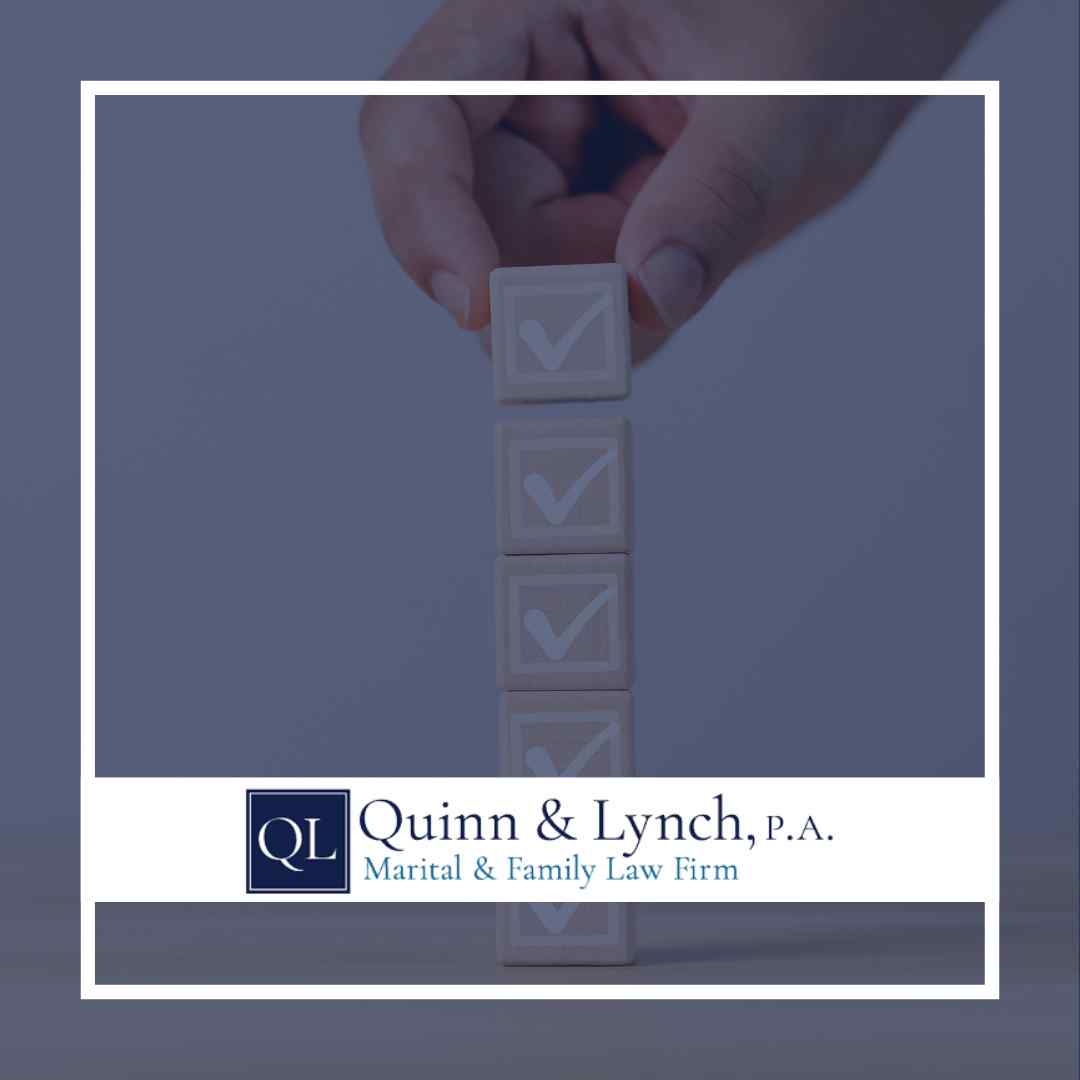The divorce process is different for everyone. The emotions, the timeline, and deciding who gets what vary depending on the marriage. The one commonality between all divorces is that there’s a lot of filing paperwork and gathering documentation involved. With so much to consider, how do you know what to prepare for a divorce? We’ve compiled this divorce checklist of the most important considerations, though your particular needs may vary.
If you have any questions about gathering the right information, please don’t hesitate to
contact our Tampa divorce lawyers. At Quinn & Lynch, P.A., we specialize in helping people get through their divorce by guiding them through the process.
Financial Paperwork
Often, the hardest part of a divorce is untangling finances and gathering the appropriate documents, especially when a household has merged accounts. Marriage is a contract, and untangling that contract can sometimes be difficult.
If your spouse is unwilling or unable to furnish the correct documents and information about bank accounts or tax returns, it’s important to know this sooner rather than later. Collecting financial paperwork can be quite time-consuming.
Some of the financial documents you’ll need to collect include:
- A list of credit cards, bank accounts, and debt records
- Log-in information for shared accounts
- Mortgage statements, deeds, and vehicle titles
- Shared investments and assets
- Employment records and copies of pay stubs (for both of you)
- Tax returns for the past several years
- Credit reports (for both of you)
When separating finances, it’s important to know what’s shared in the first place. From there, gather everything you have and identify what you don’t. Knowing your financial situation can help prepare you for financial independence after dissolving the marriage.
Legal and Personal Paperwork
Aside from financial information, you’ll also need to collect many personal documents. These can include:
- Your marriage certificate
- Social Security Numbers and birth certificates (for you, your spouse, and children)
- Insurance policies
- Trust documents and wills
- Prenup or postnup agreements
You should also document valuable items you would like to keep, like jewelry, electronics, and art. Having a list of things you want to keep after the divorce may make dividing up assets and property easier. If you’re worried about your spouse hiding or throwing away an item that’s important to you, like a photo album or other personal memento, you may consider renting a storage locker or keeping it at a trusted friend’s house until the divorce is finalized.
A Childcare Plan
If you have children with your spouse, planning their future after things are finalized is important. There are obvious questions, like where your child will live and how their time will be shared between households. There are also more complicated considerations, like education costs, insurance coverage, and child support.
When one parent withdraws from the household, there’s less money to pay for the expenses of raising a child. It’s important to understand the immediate financial implications of being a one-parent household and how that will change your taxes. We recommend speaking with an accountant or financial advisor so you can understand the full impact of such a decision.
Furthermore, don’t forget to have things like your child’s medical records and school information on hand. These will help if your child moves to a new school or you are solely responsible for their wellbeing.
A Reliable Support Network
One of the most critical things to have when going through a divorce is a support network of people behind you. Even a collaborative divorce, which includes a mental health professional on your team, can be emotionally exhausting and stress-inducing. That’s why we recommend having people who love you available to keep you going.
Remember to find time to nurture your own well-being during your divorce and connect with people you love. By staying involved with relationships separate from the divorce, you may be able to weather this change in your life with less stress. Of course, good friends and family aren’t a substitute for a mental health professional. There’s no shame in seeking help from a therapist or counselor if you’re overwhelmed during or after the divorce process.
A Divorce Attorney on Your Side
Divorce is never as simple as signing some paperwork and saying goodbye. Divorce is a complex legal process, often involving many different variables. Having a good divorce attorney will make this complex journey much simpler. An attorney will work with you patiently during this time of change. They’ll guide you through the divorce checklist process and help you find out what documents you need to gather – and how to get the ones you don’t already have. And when a marriage doesn’t end amicably, a divorce attorney will be someone who’s always on your side.
We’ve written about questions to ask a divorce lawyer to determine if they have the right experience and attitude to handle your case. Ultimately, you’ll want a divorce attorney who will listen to your concerns, take the time to understand your unique situation, and help you devise a tailored action plan.
If you’d like to learn more about the attorneys here at Quinn & Lynch, P.A., contact us. Our family lawyers are experienced in helping clients through the dissolution of their marriages – and all of the other issues related to such a big life change. We’ll answer any questions and help you decide the path best for you during a divorce.















